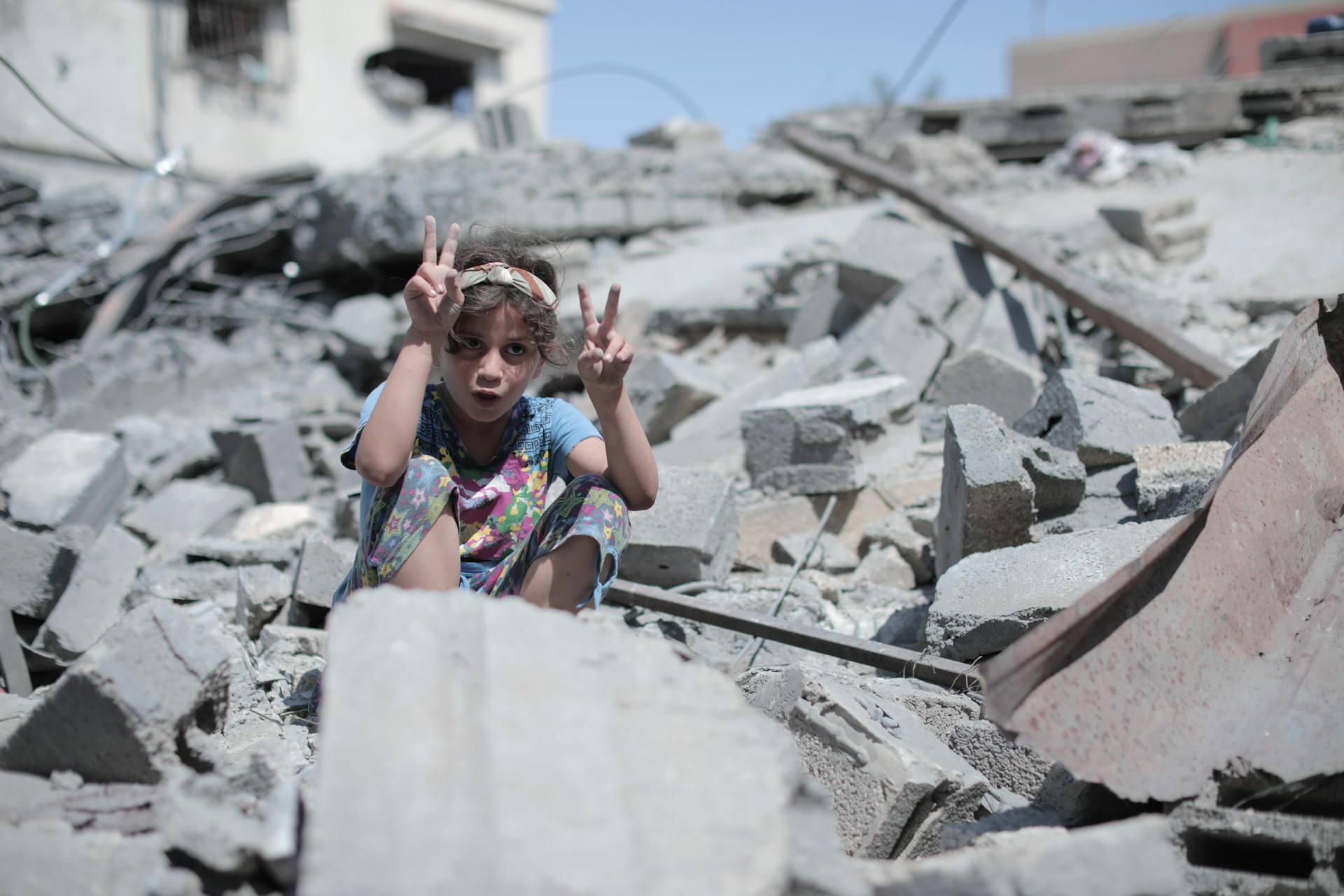
A group, led by Gates Cambridge Scholars, is helping Palestinian students navigate the admissions processes of universities across the world.
For our mentees, an offer to an international university can mean the difference between life and death. This urgency is the driving force of what we do as mentors, coordinators, and organisers.
Kathy Chacon
A group of students, initially brought together by Gates Cambridge Scholars, and now expanding beyond both Gates and Cambridge, has formed the Palestine Educational Opportunity Initiative (Pal Ed) to support Palestinian students with university admissions.
The group came about as a result of meetings between members of the Gates Against Genocide movement and other Cambridge-based academics, including Impact Prize winner Dr Mona Jebril [2012], a Gates Cambridge Scholar from Gaza.
The Gates Against Genocide movement has three main areas of activism: lobbying the University of Cambridge about divestment issues; putting on events which highlight what is happening in Palestine; and the mentorship initiative designed to help Palestinian students – especially those from Gaza – get admission to top universities around the world.
The mentorship scheme was launched in mid-August and within 24 hours, thanks to on the ground support from Dr Loay Kanou, 800 Palestinian students, most of them from Gaza, and over 140 mentors had signed up. Most of the mentors were either Gates Cambridge Scholars or other University of Cambridge students. The steering committee is almost wholly made up of Gates Cambridge Scholars.
How it works
Usama Mirza [2022], who leads the initiative, says it is moving beyond the Cambridge ecosystem now and has expanded to include a number of different teams responsible for areas such as mental health advice, monitoring and evaluation, external collaborations and marketing. The group, which has a website and social media presence, also has a committee of people with experience on the ground in Palestine who are able to advise on the fast-shifting and unpredictable context in Palestine.
Those involved in the initiative, which is also building connections with Palestinian institutions on the ground, are able to feed back on some of the issues they know Palestinian students are facing when applying to universities, for instance, over lack of deadline flexibility. Given they are subject to constant displacement and unstable internet connection, it is very difficult to meet strict deadlines. Admissions fees are also a big barrier. “We want to advocate on the students’ behalf,” says Usama.
Following a pilot run that matched 33 mentors with 55 mentees and the development of clear mentorship guidelines, the initiative is seeking additional mentors to volunteer their time. Anyone with experience in university or scholarship applications – including current students, academics, and professionals – is invited to volunteer.
Mentors will receive:
- a Mentorship Handbook to support scholarship searches and application processes, complementing their field-specific expertise;
- an onboarding mental health advisory resource;
- access to personalised mental health advice should any challenges arise during their mentorship.
Mentorship sessions can be held on any platform and scheduled according to the mutual convenience of mentors and mentees, with no minimum time commitment required.
The efforts are beginning to bear fruit. A mentee from Gaza, Abdelrahman Al Gherbawi, has been accepted to a graduate programme in Ireland. You can support his relocation costs through this link.
Kathy Chacon [2024], a Gates Cambridge scholar and lead for mentorship coordination, mentored Abdelrahman. She said: “Recently, I was on a mentorship call with Abdelrahman when a bomb struck near his home in Gaza. For our mentees, an offer to an international university can mean the difference between life and death. This urgency is the driving force of what we do as mentors, coordinators, and organisers. Abdelrahman’s university offer and ongoing fundraising efforts are testimonies to the power of collective action and the meaningful change we can bring when we collaborate across nationalities, cultures, and academic specialisms for a common cause.”
Challenges and the next phase
Usama says there have been clear challenges, including communication difficulties over various platforms, meaning asynchronous communications work best. He adds that some mentors are keen to see the application through from beginning to end while others are focused on specific advice.
The next phase includes developing the technology needed to match mentees with mentors more effectively so the initiative can provide more tailored support. The steering group is also keen to develop the mental health support provided to all those involved. Some of the stories the mentors hear are ‘beyond harrowing’, says Usama. One student described having to remove shrapnel from their child’s leg; another said they weren’t sure they would be alive for the next call.
“It’s really harrowing, but so important to understand the realities and for mentees to connect with the mentors. It gives them hope and shows the world cares,” says Usama. “They just want to be able to live dignified lives. They are a highly educated population. They want to be able to apply their skills.”
In response to demand and following advice from Dr Nazmi Al Masri, a University of Glasgow academic who is currently stranded in Gaza, the mentors also signpost their mentees towards freelance work if they need it to develop their skills.
Usama hopes the initiative will expand into support for academics and will address issues such as attacks on Palestinian academics. It is currently seeking to build more links across the University of Cambridge and beyond.
*If you are interested in volunteering, fill out this form. If you are a Palestinian student interested in receiving support, fill out this form.
**Photo of young girl amid ruins in Gaza by Mohammed Ibrahim on Unsplash.












